The benefits of napping – and how to snooze without affecting your sleep at night
Trying to get the most out of your nap this World Sleep Day (Mar 15)? Try this surprising hack by drinking a cup of coffee or tea before a nap.
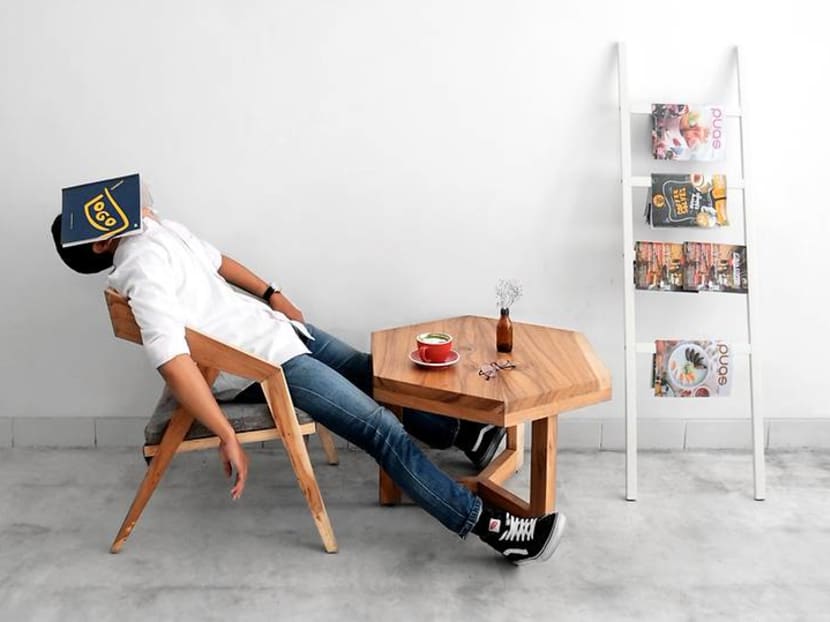
(Photo: Unsplash/Hutomo Abrianto)
If you’re reading this article with heavily lidded eyes and no amount of coffee seems to be keeping them open, don’t beat yourself up over it.
It’s not that you’re being lazy; it could be how you’re wired.
Mammals are 85 per cent polyphasic sleepers, meaning they sleep for short periods throughout the day, according to the US National Sleep Foundation.
But through evolution, humans became mostly monophasic sleepers, which is what we do now: We sleep for a prolonged period during the night, wrote Prof Kelly Bulkeley on Psychology Today.
But some individuals still have a tendency towards a polyphasic cycle, which explains why they need a siesta, he noted.
There are also other reasons why you need to snooze, mainly, a sleep debt from not clocking seven to nine hours of uninterrupted sleep each night.
"After the sixth year of life, humans don’t generally need to nap, unless you accumulate a sleep debt," said Mary Lyn Besmonte, a registered nurse and therapist at The Air Station, a centre for sleep apnoea.
"Sleep deprivation is one of the commonest causes of sleepiness," said Associate Professor Khoo See Meng, a senior consultant from Alexandra Hospital's Respiratory And Critical Care.
And Singaporeans are infamous for running up such debts. According to the 2019 Global Pursuit Of Better Sleep Health survey by Philips, we sleep just 6.3 hours on weekdays and 6.7 hours on weekends – lower than the global average of 6.8 and 7.8 hours respectively.
More worryingly, four in 10 Singaporeans say their sleep has actually worsened over the past five years.
Stress, shift work, travel, medical conditions such as insomnia, sleep apnoea and narcolepsy as well as being a parent to a baby are some of the situations that can deprive you of rest at night.
It's little wonder that 65 per cent of Singaporeans experience daytime sleepiness throughout the week, according to the survey.
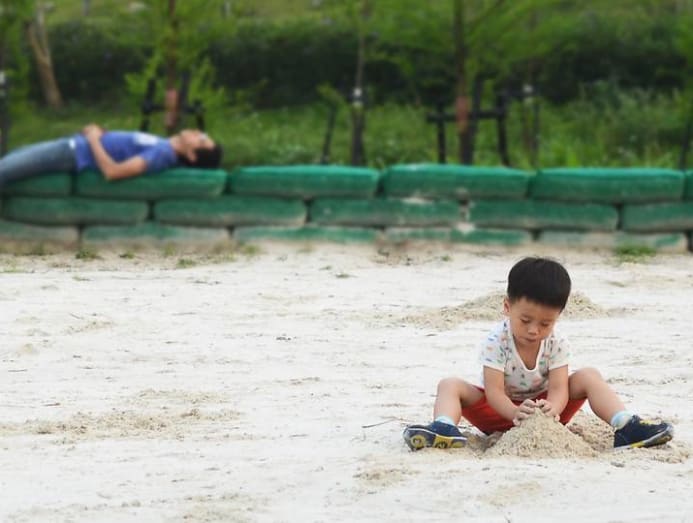
But between napping and sleeping in on the weekends, it may be a better option to nap, said Assoc Prof Khoo.
"Weekend catch-up sleep may disrupt the circadian rhythm and lead to poor bedtime sleep," he said.
Even if you don’t have an inherent need to nap, you’ve got to admit that snoozing in the afternoon is a treat.
And you aren’t alone in that. Famous nappers include Leonardo da Vinci, Albert Einstein, Thomas Edison, Winston Churchill and Margaret Thatcher.
This World Sleep Day (Mar 15), find out how you can catch up on sleep with naps.
THE BENEFITS OF NAPPING
It mentioned that a NASA study on sleepy military pilots and astronauts found that a 40-minute nap improved performance by 34 per cent and alertness, 100 per cent.
READ: Can’t sleep at night, dozing off in the day – it could point to bigger health issues
That mid-afternoon sleepiness you experience could be caused by a natural dip in your circadian rhythm, spurring you to look for sugary snacks or drinks to pick yourself up.
And if you’re trying to keep the weight off, nap time could be your ally because, well, you won’t be able to eat while you’re napping.
“Individuals who are feeling sluggish during the day may be more likely to make poor food decisions, especially if they are looking for an energy boost,” said Prof Elizabeth McDevitt, a researcher at the Sleep And Cognition Lab at the University Of California.
“They may be more likely to choose sugary food and drinks. From this point of view, napping is a healthier alternative to combat sleepiness.”
READ: Your baby won’t sleep through the night? You’re not alone
In fact, “a short nap interferes with ‘sleep drive’, that irresistible feeling that you need to go to sleep, which will wreck concentration and alertness”, said Dr Carl Bazil, Director of the Division Of Sleep And Epilepsy at the New York-Presbyterian/Columbia University Medical Center.
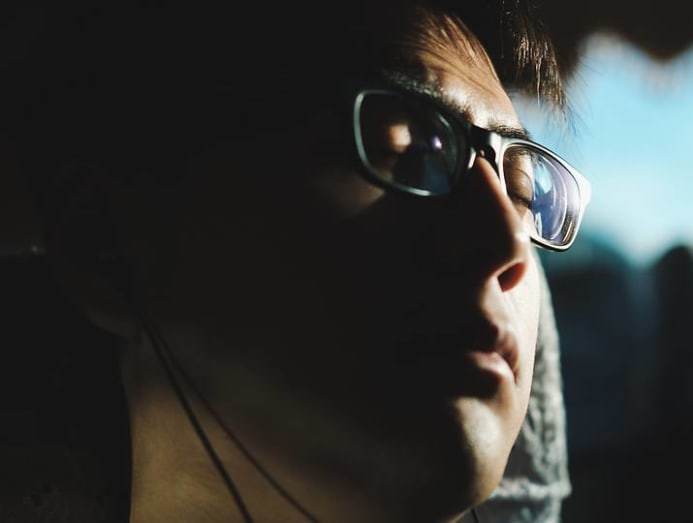
Your memory gets a boost, too, as napping “strengthens the neural connections that form our memories,” said Prof McDevitt.
It’s a notion Prof Sara Mednick, author of Take a Nap! Change Your Life, agrees.
“During sleep, brain areas that were involved in initially acquiring a memory might be reactivated, essentially ‘replaying’ neural activity during sleep,” she said.
READ: Feeling sleepy at work? The importance of power naps and where to take them in busy Singapore
And as it turns out, sleep is the easiest form of stress management you can slip into. Research from Allegheny College found that naps helped participants to lower their blood pressure after taking a test.
It could be that sleep goes some way in helping the heart – and blood pressure – recover from stress better.
Research from the University Of Berkeley, California seems to confirm this: Experts found that those who didn’t sleep enough had significant activity in parts of the brain associated with anxiety.
HOW TO NAP
Why in the world would you need instructions on how to nap? Doesn’t it come as naturally as breathing?
When done right, napping wouldn’t disrupt your night-time sleep nor create sleep inertia – that disruptive post-nap grogginess that may last 10 to 20 minutes after waking, according to the National Sleep Foundation.
Something your boss wouldn’t appreciate at the afternoon meeting.
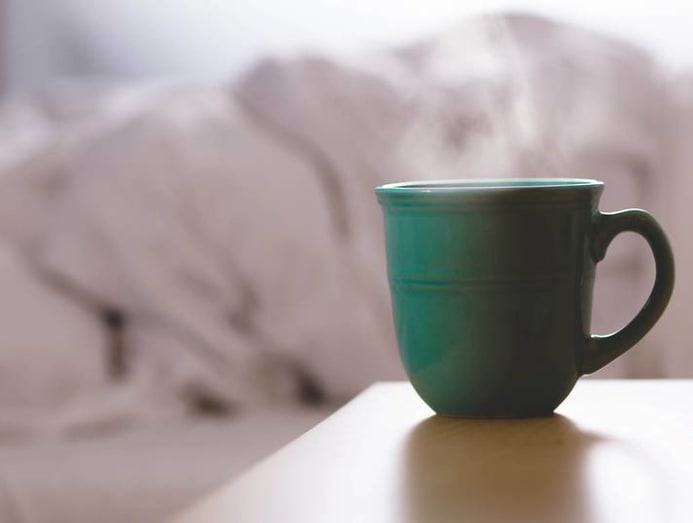
- Try caffeine before napping
Yes, you read right. As counter-intuitive as it sounds, having a cup of coffee or tea right before falling asleep for 15 to 20 minutes is like adding an energy shot to your nap, said experts.
"The key to a successful coffee nap is to sleep before the stimulating effect of caffeine takes over, and keep in mind to nap 15 to 20 minutes only," said Besmonte.
So, what's the science behind caffeine naps? Sleepiness is caused by a chemical called adenosine, said Besmonte.
"The longer we are awake and the more energy we use, the more adenosine accumulates in the brain."
There are receptors in your brain that detect the sleep-inducing chemical, and when its levels are high enough, your brain signals that you need to get rid of it.
And the only way your body knows how is to sleep.
How caffeine keeps you alert is this: It jostles with adenosine for the brain’s receptors like in a game of musical chairs.
Caffeine usually crowds out the adenosine and as a result, your brain doesn’t detect high levels of the chemical – and doesn’t think you need snooze time.
READ: Struggling to wake up every morning?
Given the above background, you can see why some experts say that sleep and coffee can help you take the ultimate nap as one prevents the brain from detecting adenosine, while the other lowers the levels of the sleep-inducing chemical.
But caffeine naps "may not work for everyone", said Besmonte.
If you’re caffeine-sensitive or have insomnia, avoid caffeine naps later in the day or near bedtime.
The body usually takes about five to six hours to eliminate half of the caffeine ingested.
- Best time to nap
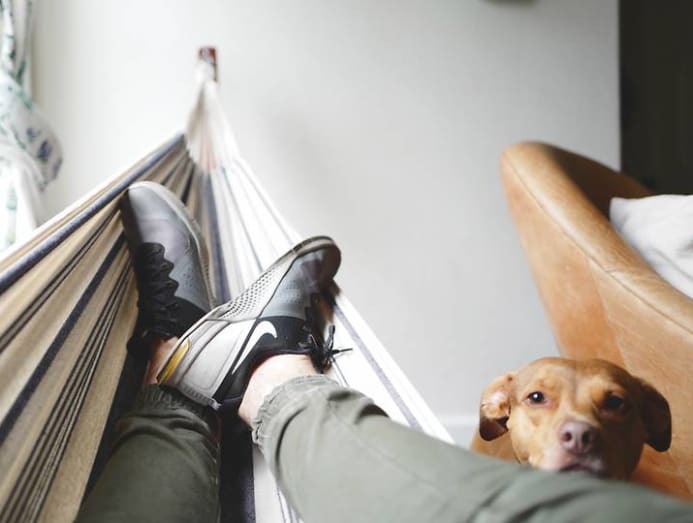
Between 1pm and 3pm when your circadian cycle typically experiences the lowest dip in the day.
But if you have an unusual schedule (early mornings or late nights), find out your best nap time with this wheel by Prof Mednick.
- Keep it to 15 to 20 minutes
That duration is optimum, according to Assoc Prof Khoo.
"A longer nap may cause you to go into deep sleep (slow-wave sleep), which is associated with drowsiness and disorientation upon waking," he said.
But if time is not an issue, snoozing for 90 minutes can boost creativity, according to the NASA scientists.
However, don’t sleep for more than 90 minutes. That’s when you enter a new sleep cycle and it can mess up your night-time sleep.
- Snooze on the couch – or the hammock
You don’t want to get too comfortable and nap for too long, which you’re likely to do in bed.
In fact, a Swiss study noted that a hammock is the best place to nap as the rocking motion that lulls babies to sleep works on adults, too.





